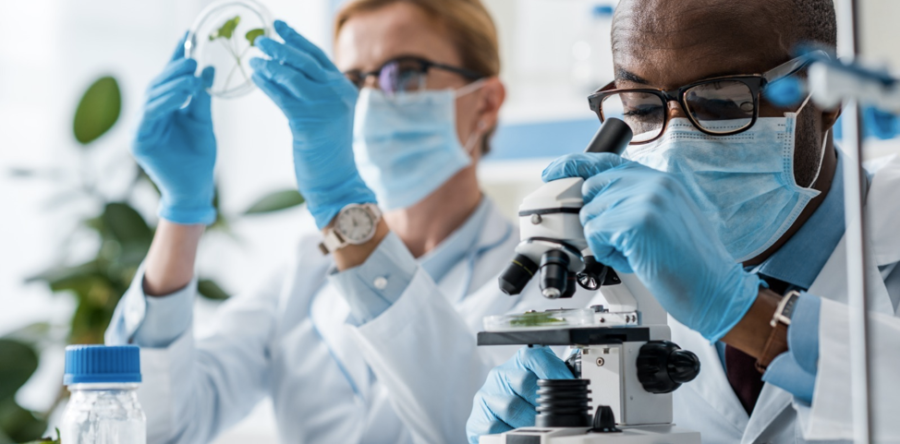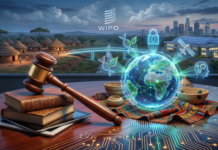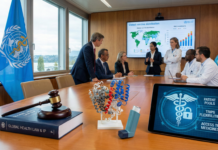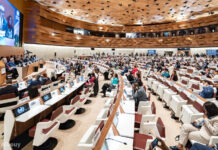By Chidi Oguamanam and Jessica Hennings
This article was originally published by ABS Canada here

With the world on edge as the COVID-19 crisis progresses, the scientific community has sprung into gear in search of an effective treatment. Research and Development (R&D) is progressing at unprecedented speeds, abridging the projected length for the completion of a vaccine from over a decade to just over a year. Amidst this rapid development, traditional knowledge plays a significant role in scientific endeavours. For example, Madagascar’s Covid-Organics is formulated in part with traditional medicinal plants. Through traditional knowledge, medical researchers can gain guidance and inspiration and bypass prolonged and expensive scatter-gun approaches to R&D.
The search for a COVID-19 cure represents an opportunity to diversify Western medicine and to appropriately incorporate traditional knowledge into the development of this much-needed treatment. In achieving this, the speed of the medical research pipeline is crucial to the timely discovery of a remedy to COVID-19. For research involving Indigenous traditional knowledge, we recognize the accommodation for medical emergencies and the necessity for sharing knowledge. However, those must be taken in balance and not at the expense of effective Access and Benefit Sharing (ABS) frameworks and the need to stem biopiracy.
Avoiding biopiracy
When researchers appropriate Indigenous traditional knowledge without proper procedure, acknowledgement, or benefit-sharing agreement, this is considered biopiracy. The ramifications of biopiracy are often economic, where an outside corporation patents traditional knowledge-inspired invention for profit, and the community or nation that has nurtured the knowledge receives none or little of the associated benefits. Predatory application of intellectual property regimes is central to most cases of biopiracy. Powerful (and most often Western) corporations can take advantage of intellectual property frameworks to obtain these patents and isolate traditional knowledge from its often-integral place in the Indigenous community. While intellectual property frameworks are evolving to accommodate traditional knowledge, the marginalization of Indigenous People’s contributions to biotechnological development continues to escalate.
The Nagoya Protocol and the Convention on Biological Diversity established international guidelines of domestic ramifications for the fair and equitable sharing of biological resources and the benefits that come from their utilization, including traditional knowledge related to genetic resources. The Protocol provides clear rules for states to create guidelines for obtaining prior informed consent from communities and for determining mutually agreed upon terms in the use of traditional knowledge and resources. While the obligations of these treaties are not global (Canada is currently not a member of the Protocol), any ethically inclined corporation or researcher can avail themselves to the benefits of the Protocol along with a vast array of resources for indigenous-sensitive research and development practices.
While the frameworks of intellectual property may be insufficient in ensuring effective ABS agreements through legal obligations, corporations and researchers should continue to be held socially and ethically responsible for R&D and product development involving Indigenous People and their knowledge. This accountability is especially crucial in light of the global quest for a COVID-19 treatment in which the Indigenous knowledge of local communities is now on the radar.
Balancing ABS with urgency
While the risk of biopiracy in the development of a COVID-19 cure is largely hypothetical outside of Madagascar and related cases, clear trends are appearing in the treatment development process. A common occurrence is the open sharing of resources and information within the scientific community. Examples include China’s release of the genetic profile of the new Coronavirus and scientific journals sharing pre-prints of study findings before full peer review to increase the speed of dissemination. Research institutions are collaborating at an unprecedented rate to share samples of the virus, access to technology, and studies of possible remedies. Inspired by Costa Rica, 35 other countries, and various partners, the World Health Organization has launched the COVID-19 Technology Access Pool (C-TAP) as a boost to the ACT Accelerator program to further equitable access to benefits of R&D. This speed is necessary as global lockdowns drag on with unprecedented disruptions in the world order as we know it. In concert with these high-speed collaborations are complementary and growing political sentiments on national and international stages, calling for universal access and affordability of the anticipated cure. Fast-paced research and political bargaining are necessary but must remain sensitive to the undergirding principles of ABS and the tendency to undermine Indigenous People’s contribution to R&D as an increasingly concerted process, especially in the context of COVID-19 research.
The urgency of the global pandemic should not excuse poor or compromised R&D ethics. On the contrary, the latter needs reinforcing. Researchers that wish to study biological resources from Indigenous communities must be held accountable to the relevant protocols, including obtaining Prior Informed Consent and ABS, even if under an abridged framework. Like other researchers, partners, and collaborators, where applicable, Indigenous Peoples and local communities must also be beneficiaries or recipients of the vast public funding dedicated to the search for COVID-19 cure. In the Western world, including Canada, rarely are Indigenous Peoples, knowledge holders, or organizations considered or targeted for publicly funded support for COVID-19 research. Any treatment for COVID-19 is likely to achieve widespread use and attract further scientific research in preparedness for the potential transformation of the new Coronavirus. It will be self-defeating to hastily dismiss Indigenous knowledge in the equation, as many have done with the Madagascan initiative. Such dismissals echo the dominant power relations in which Indigenous knowledge is devalued and denied, only to be later appropriated into the privileged scientific and intellectual property (patent) paradigm. The power relations undergirding the erasure of Indigenous medicinal knowledge and its contributions from the universal canon of medicine is easily perceptible in the unwritten ‘politics’ of COVID-19 research. The current attempt to deny and suppress Indigenous knowledge is a familiar historical pattern. Indigenous knowledge must be given the same support and chance as other knowledge systems in the urgent quest for a cure for COVID-19. In the midst of that urgency, collaborations and partnerships must reinforce the best ethical standards and ABS principles.









